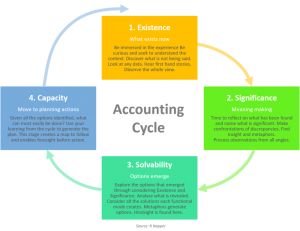Is shipping on the last day of the month that important and at any cost?
In my work in management consulting in the areas of accounting and finance I get involved with many client companies’ financial statement preparation, disclosure work and internal control (plus internal audit in several of the larger companies). What is common to all of these companies, regardless of size and industry, is the fact that in the last few days of any accounting period there is this frenzy of activities, mostly shipping, with several of these companies stuffing trailers with products until midnight of the last day of the fiscal period.
What seems odd to me, although I perfectly understand the motivation behind this, is that all of that hard work in shipping and accounting on that long Friday (or Saturday) night will only result in these trailers being hauled away by the common carriers the following Monday. I always questioned the fact that this behavior does not really comply with GAAP rules as to me the earning process is not complete if these trailers are left in the rain or snow to sit there for more than 48 hours while the customers who ordered the products hidden in these containers have no idea that ownership had already been transferred to them.
Besides, if I am the seller who recognizes revenue on the last day of the month, it is implied that my customer must recognize the inventory in transit as well as a liability to me on the same day (which may or not be the last day of their accounting period). Is that what the customer really wants? Probably not, unless their requested ship date happens to fall on the last day of the seller’s accounting period.
Of course, this assumes that revenue recognition can take place when products are shipped and there are no other conditions that must be met (such as installation, or training and acceptance by customers, among other things) before the seller of the goods can include these amounts in gross revenue for the period.
While I have no problem endorsing the fact that a “for-profit” business must make every effort to maximize financial results and increase the value of shareholders’ equity, I question this type of behavior as it implies that in the first two or three weeks of each month there is no urgency to get things done, or to follow customer delivery request dates that are captured on company sales orders that drive the entire manufacturing process. If there are approximately 22 working days per month, shouldn’t manufacturing and especially shipping activities be spread more evenly across those days?
So now that these last minute shipments have made it into the trailers, I don’t think there will be much left to do on Monday, the start of a new accounting period, and we will need to wait for finished goods to appear on the shipping docks, once again late in the month, for this process to only repeat itself.
As for billing these shipments, unless the earning process is really complete, I would wait for that to happen, and who knows, this might increase the real sales in the following period. What do you think?
I realize that management puts pressure on operations to perform in order to deliver the forecasted (and desirable) financial results, but I think that more important is to follow a strategic plan, coupled with a solid budget and meaningful analysis year round, while focusing on customer demand (including following the very important customer requested delivery dates) and not just on “how much more can we get out the door before the clock strikes midnight.”
Business & Finance Articles on Business 2 Community(98)
Report Post




